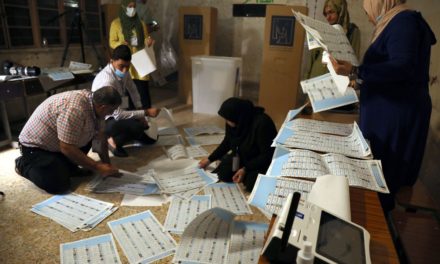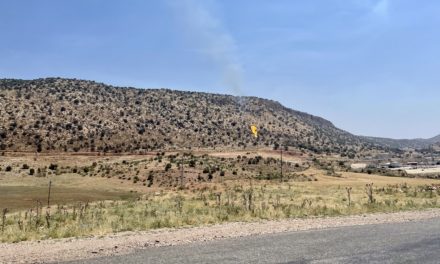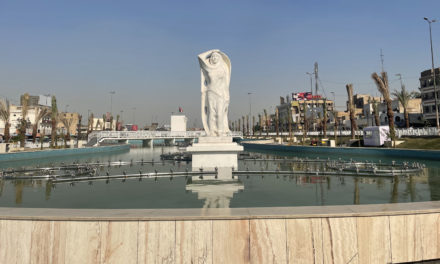(Photo: Anadolu Agency)
The Kurdistan Region of Iraq is not only dangerous for journalists and protesters, but for everyday citizens seeking a better life. While it has often been described in the media as a beacon of democracy, it has become the least democratic region in Iraq.
The dangers for protesters stem from the police and security forces that confront them with military force. Government forces arrest, kidnap, and are even suspected of targeted assassinations. This has been the case for the past decade, with the latest attack against protesters in December 2020, when ten young protesters were killed by the security forces. Some of the victims were university students. There were many others injured.
In the recent protests that started last month which are led by university students, many of the protesters have been injured and many have been arrested. Videos and photos shared on social media show how the security forces confront the students with brutality, using tear gas and live ammunition.
Furthermore, human rights organizations have documented that those who protest the two main ruling political parties in Kurdistan have frequently faced force, arrest, torture, kidnapping, and death.
The region is also dangerous for journalists. If one tries to cover the protests as a journalist, they will face a similar fate to that of protesters. The police and the security forces have not been trained to behave professionally and ethically when interacting with the media. With the latest student-led protests, several journalists have been kidnaped and arrested while working.
It is not expected that the brutality against protestors and media will cease anytime soon given that the security forces are under the control of the two dominant political parties, which use arms to protect themselves from the people.
After 30 years of independence from Saddam’s regime in Kurdistan and 18 years since the war that removed Saddam from power in Baghdad, the current Kurdish ruling elite have adopted Saddam’s system and style of quelling dissent. While many things change, there is no radical change in the mentality of ruling; there is no unified national army and security force. In too many instances history is repeating itself, and the tragedy of oppressing the people is ongoing.
I have experienced the mistreatment of journalists firsthand. Throughout my work as a journalist, I have been arrested, humiliated, tortured and threatened during the coverage of protests on several occasions.
I was first arrested in Sulaymaniyah in 2006 while I was covering a protest. At the time I was editor-in-chief of a monthly student newspaper and a university student at the same time. I had a camera and a journalism ID with me. Nevertheless, more than 15 members of the security forces attacked me, and as I tried to run away, one of them hit my head with his gun and I lost consciousness. They took me to the general security prison in Sulaymaniyah, and I was detained there for five days. I was kept in a room with drug addicts and people accused of theft and murder. I was shocked because I have heard from older generations how the former regime used to arrest people and torture them, but this time I experienced it myself after the regime’s collapse. Following that, I was arrested three other times. Luckily, I was not tortured during the arrest, but nevertheless was warned not to cover protests or publish in newspapers.
I went to India in 2014 to study and I came back to the region in July 2016. On the first of August 2016, I started to work for a news agency. I went to cover protests in Sulaymaniyah on the sixth of August, taking with me my camera and journalism ID. One member of the security forces asked me to show him my ID. When I did, he threw my ID on the ground and attacked me. Other members of his team joined him and started to beat me. I tried to escape, but one of them sprayed tear gas in my eyes and I temporarily lost my sight. While unable to see anything, the group of security forces members beat me up and were using the abusive language against me. The combination of physical and psychological torture affected my mental health for a long time. Ten years after my first arrest in 2006, nothing has changed in terms of how journalists are treated in the Kurdistan Region of Iraq. In fact, the second arrest was more brutal and inhumane.
I am not optimistic that the behavior of the security forces with protesters and journalists will change, as long as the armed forces and the security forces in the region are under the control of the two dominant political parties, the Kurdistan Democratic Party (KDP) and the Patriotic Union of Kurdistan (PUK). While these two parties don’t have the support of the majority of citizens in the Kurdish region, they have controlled every aspects of life in the region by force for three decades. According to the latest statistics, the KDP and PUK had 23% of the votes of people during the October national elections, meaning that 77% of people do not support them, but they still rule the region regardless of the will of the people in region and the principles of democracy.
Hours after I finished writing this article, a military commander and four young people were killed in acts of assassination that are related to the political conflict. The Kurdish people yearn for stability, real freedom of speech, and respect for their right to protest without fear of being persecuted and their demands politicized.

Karwan Ibrahim
Karwan Ibrahim is the editor-in-chief at NRT TV in Iraqi Kurdistan. He has a Master’s in Communication and Journalism from India. He can be reached at karwantree@gmail.com.










